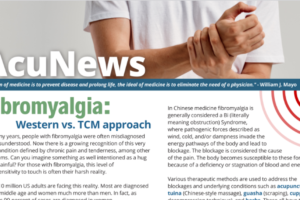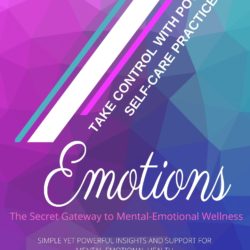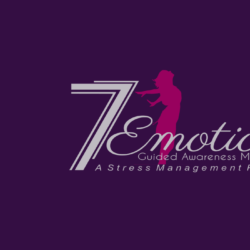The Health Benefits of Tai Chi
Excerpts from Harvard Medical School Health Publications Article
 “A growing body of carefully conducted research is building a compelling case for tai chi as an adjunct to standard medical treatment for the prevention and rehabilitation of many conditions commonly associated with age,” says Peter M. Wayne, assistant professor of medicine at Harvard Medical School and director of the Tai Chi and Mind-Body Research Program at Harvard Medical School’s Osher Research Center.
“A growing body of carefully conducted research is building a compelling case for tai chi as an adjunct to standard medical treatment for the prevention and rehabilitation of many conditions commonly associated with age,” says Peter M. Wayne, assistant professor of medicine at Harvard Medical School and director of the Tai Chi and Mind-Body Research Program at Harvard Medical School’s Osher Research Center.
“This gentle form of exercise can prevent or ease many ills of aging and could be the perfect activity for the rest of your life.”
“Tai chi is often described as “meditation in motion,” but it might well be called “medication in motion.”
“In this low-impact, slow-motion exercise, you go without pausing through a series of motions named for animal actions” for example, “white crane spreads its wings” or martial arts moves, such as “box both ears.” As you move, you breathe deeply and naturally, focusing your attention — as in some kinds of meditation” on your bodily sensations.”
“Tai chi differs from other types of exercise in several respects. The movements are usually circular and never forced, the muscles are relaxed rather than tensed, the joints are not fully extended or bent, and connective tissues are not stretched. Tai chi can be easily adapted for anyone, from the most fit to people confined to wheelchairs or recovering from surgery.”
No Pain, Big Gains
Although tai chi is slow and gentle and doesn’t leave you breathless, it addresses the key components of fitness ” muscle strength, flexibility, balance, and, to a lesser degree, aerobic conditioning. Here’s some of the evidence:
Muscle strength. Alternative Therapies in Health and Medicine, 2006: Stanford University researchers reported benefits of tai chi in 39 women and men, average age 66, with below-average fitness and at least one cardiovascular risk factor. After taking 36 tai chi classes in 12 weeks, they showed improvement in both lower-body strength (measured by the number of times they could rise from a chair in 30 seconds) and upper-body strength (measured by their ability to do arm curls).
In a Japanese study using the same strength measures, 113 older adults were assigned to different 12-week exercise programs, including tai chi, brisk walking, and resistance training. People who did tai chi improved more than 30% in lower-body strength and 25% in arm strength” almost as much as those who participated in resistance training, and more than those assigned to brisk walking.
“Although you aren’t working with weights or resistance bands, the unsupported arm exercise involved in tai chi strengthens your upper body,” says internist Dr. Gloria Yeh, an assistant professor at Harvard Medical School. “Tai chi strengthens both the lower and upper extremities and also the core muscles of the back and abdomen.”
Flexibility. Women in the 2006 Stanford study significantly boosted upper- and lower-body flexibility as well as strength.
Balance. Tai chi improves balance and, according to some studies, reduces falls. Proprioception” the ability to sense the position of one’s body in space” declines with age. Tai chi helps train this sense, which is a function of sensory neurons in the inner ear and stretch receptors in the muscles and ligaments. Tai chi also improves muscle strength and flexibility, which makes it easier to recover from a stumble. Fear of falling can make you more likely to fall; some studies have found that tai chi training helps reduce that fear.
Aerobic conditioning. Depending on the speed and size of the movements, tai chi can provide some aerobic benefits. But in the Japanese study, only participants assigned to brisk walking gained much aerobic fitness. If your clinician advises a more intense cardio workout with a higher heart rate than tai chi can offer, you may need something more aerobic as well.
Tai Chi for Medical Conditions
Tai Chi is helpful for several medical conditions when combined with standard treatment, fro example:
Arthritis.
- 40-person study at Tufts University, October 2008 at a meeting of the American College of Rheumatology: 1 hour of tai chi twice a week for 12 weeks reduced pain and improved mood and physical functioning more than standard stretching exercises in people with severe knee osteoarthritis.
- Korean study, December 2008 in Evidence-based Complementary and Alternative Medicine: 8 weeks of tai chi classes followed by eight weeks of home practice significantly improved flexibility and slowed the disease process in patients with ankylosing spondylitis (a painful and debilitating inflammatory form of arthritis that affects the spine).
Low bone density.
- Review of six controlled studies by Dr. Wayne and other Harvard researchers: Indicates tai chi may be a safe and effective way to maintain bone density in postmenopausal women.
Breast cancer.
- Study at University of Rochester, 2008. Medicine and Sport Science: found that quality of life and functional capacity (including aerobic capacity, muscular strength, and flexibility) improved in women with breast cancer who did 12 weeks of tai chi, while declining in a control group that received only supportive therapy.
- Tai chi has shown potential for improving quality of life and functional capacity (the physical ability to carry out normal daily activities, such as work or exercise) in women suffering from breast cancer or the side effects of breast cancer treatment.
Heart disease. 53-person study at National Taiwan University, Sept. 2008. Journal of Alternative and Complementary Medicine: found that a year of tai chi significantly boosted exercise capacity, lowered blood pressure, and improved levels of cholesterol, triglycerides, insulin, and C-reactive protein in people at high risk for heart disease. The study found no improvement in a control group that did not practice tai chi.
Heart failure. 30-person pilot study at Harvard Medical School: 12 weeks of tai chi improved participants’ ability to walk and quality of life. It also reduced blood levels of B-type natriuretic protein, an indicator of heart failure. A 150-patient controlled trial is under way.
Hypertension. Review of 26 studies in English or Chinese, Spring 2008. Preventive Cardiology: reported in 85% of trials, tai chi lowered blood pressure” with improvements ranging from 3 to 32 mmHg in systolic pressure and from 2 to 18 mmHg in diastolic pressure.
Parkinson’s disease. 33-person pilot study, Washington University School of Medicine, St. Louis, Oct. 2008. Gait and Posture: found that people with mild to moderately severe Parkinson’s disease showed improved balance, walking ability, and overall well-being after 20 tai chi sessions.
Sleep problems. Study of 112 healthy older adults with moderate sleep complaints at University of California, Los Angeles, July 2008. Sleep: 16 weeks of tai chi improved the quality and duration of sleep significantly more than standard sleep education.
Stroke. 136 patients who’d had a stroke at least six months earlier, January 2009.Neurorehabilitation and Neural Repair: 12 weeks of tai chi improved standing balance more than a general exercise program that entailed breathing, stretching, and mobilizing muscles and joints involved in sitting and walking.
If you’re looking to learn the health rejuvenating benefits of Tai Chi you’ll definetly want to check out the program listed below.
Arthritis Foundation Tai Chi Program
Instructor: Dr. Christopher Carlow, D. Ac., Certified Instructor
Location: Women & Infants H & E / East Greenwich
Registration is Required -(401) 276-7800 x114
Register soon! Class size is limited.
Visit Classes Link for fees, dates, and locations
Sponsors: Arthritis Foundation & Women and Infants.
Interested in being a sponsor and bringing this wellness program to your location?
Contact Chris: (401) 219-6446
ALSO COMING THIS SUMMER… Tai Chi in the Park – FREE / SEASONAL Dates: TBD
Bring a friend, come try Tai Chi and see what it’s all about.









